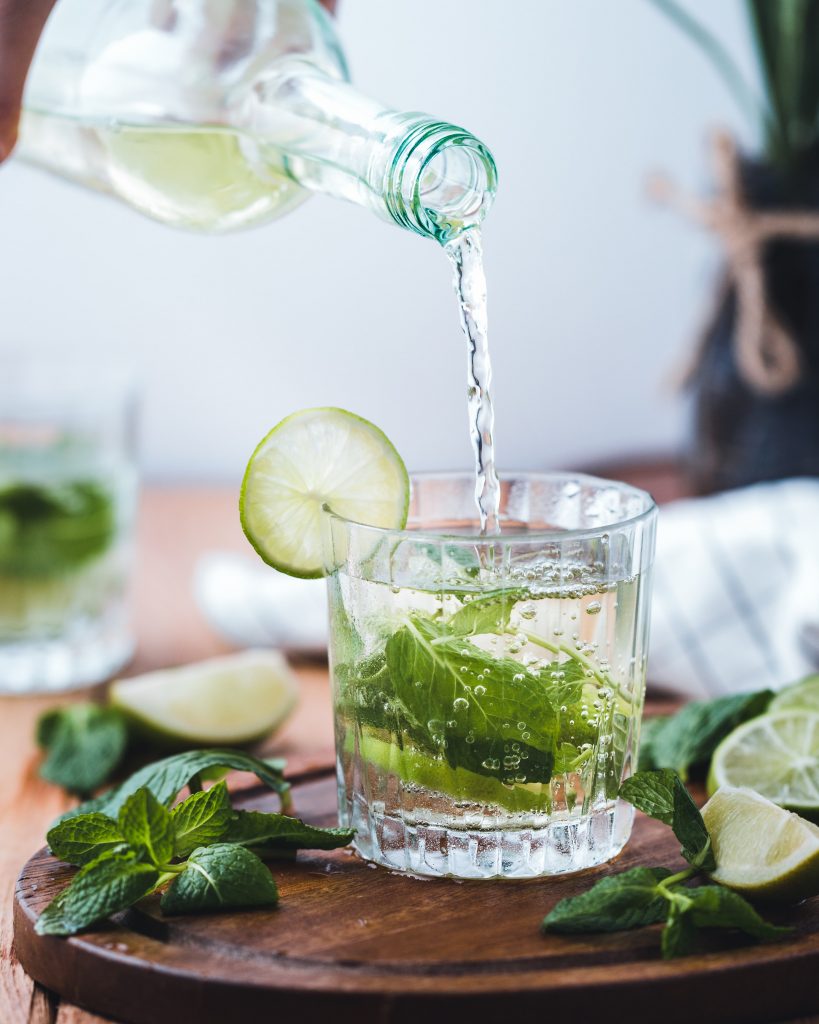Essential oils are generally regarded as safe to use for aromatherapy and topical applications of 0.5% – 2% dilution with an appropriate carrier. However, essential oils should never be taken internally whether it’s by adding them to your food, drinks, or ingesting them via a capsule.

Oils do not blend with water. That applies to essential oils, too. This is why adding essential oils to your drinks are not only unhelpful, but detrimental to your health. Given the nature of oil and water, the essential oil will come in contact the mucous membrane of the oesophagus and lining of the stomach.
Consuming essential oils via a capsule has just as much of a negative impact to your health as other methods. During the digestion process, the capsule breaks down but the essential oil does not. Instead, it disperses and attaches itself to the mucous membrane of the stomach lining.
Regardless of the method chosen for ingesting essential oils, long term consumption of these highly concentrated chemical substances eventually leads to one or more of the following – irritation and damage that can be permanent, depending on the severity, to the vital organs in the body.
The summary of the following summarized cases shows what can happen when essential oils are misused. During the years of 2012 – 2018, there were individuals ingesting essential oils over the course of a few weeks to a few months. They had dangerous side effects ranging from blisters, permanent skin sensitization, rash, damaged oesophagus and stomach lining.
The reason why essential oils don’t get broken down in the body is because essential oils are lipid soluble. Fatty acids are what make up our skin as well as the mucous membrane that protects our organs, that is why essential oils penetrate the skin and the mucous membrane so easily.
Despite many reliable sources have warned the public about the hazardous and potentially fatal side effects of ingesting essential oils, especially long term, many are still under the impression that essential oils are better than modern medicine as they are “natural”, given that they are plant derived.
Unfortunately, natural isn’t always better. Due to this belief, many individuals assume and are under the impression that essential oils can replace modern medicine and used liberally. The potency of essential oils makes it very easy to take too much, too quickly, and it becomes extremely toxic to the body.
Even essential oils are that are considered gentle such as lavender and tea tree can have harmful side effects when ingested such as vomiting, rashes, drowsiness, let alone an essential oil that has a higher risk of irritation such as cinnamon bark, oregano, lemongrass and etc.
Even though some essential oil brands claim that it is okay to ingest essential oils, it is advised to seek a second opinion from a medical professional or aromatherapist, especially if you have one or more of the following conditions – pregnant, have children and/or pets, have existing medical condition such as skin diseases, heart conditions and other.
References:
- https://www.edensgarden.com/blogs/news/is-it-safe-to-ingest-essential-oils-1
- https://www.webmd.com/beauty/news/20180813/essential-oils-promise-help-but-beware-the-risks
- https://www.poison.org/articles/essential-oils
- https://airsensual.com/general-guidelines-precautions-when-using-essential-oils/
- https://www.healthywa.wa.gov.au/Articles/A_E/Essential-oils